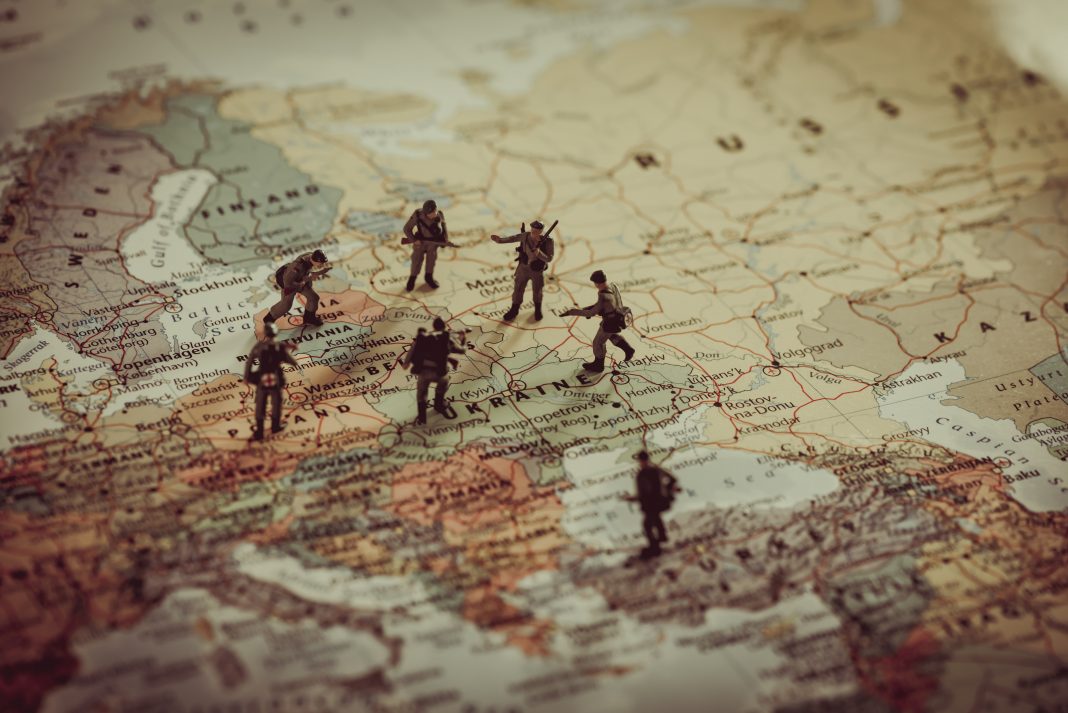The UK has relaxed policies to allow Ukrainian refugees to safely enter Britain – but why have these policies not matched the generosity of some EU States?
With over 500,000 refugees fleeing the war hotspots in Ukraine so far, due to Russia’s unruly invasion, criticism has arisen regarding the lack of action the United Kingdom has taken in comparison with its EU (European Union) neighbours to help.
The Ukrainian refugee intake is still capped at 200,000, with the UK’s rules on who can enter its borders changing numerous times in recent days. A key difference is that some visa rules are being relaxed, to allow British nationals and Ukrainians to stay in the UK and bring more family members over to safety.
However, the EU continues to plan for more strategies to open borders for refugees – including inclusive policies like allowing Ukrainian refugees to settle in its member states for three years, without having to apply for a visa. This strategy includes every EU nation, in an attempt to prepare for the “millions” of refugees which are expected from this conflict.
The “humanitarian sponsorship pathway”
Priti Patel yesterday (1 March) informed MPs of recent rule changes. Ukrainians living in the UK can now bring over other family members, such as parents and siblings. The Home Secretary further said that there will be no upper limit on the scheme, welcoming “as many Ukrainians as wish to come” in the new “humanitarian sponsorship pathway”.
The pathway, enabling Ukrainians without UK family ties to be matched with individuals, businesses, charities and community groups, allows any British nationals and any person settled in the UK to bring over immediate Ukrainian family members.
Specific visa requirements?
While these efforts could potentially allow space for up to another 100,000 Ukrainians to come to the UK and access work and public services, there are conditions which the sponsorship programme entails.
Sponsors must be one of the following things:
- Spouse or civil partner
- Unmarried partner (such as situations where people are cohabited in a relationship for two years)
- Parent, if the applicant is under 18
- Child under 18
- Adult relative who lives with the applicant to whom the applicant provides care because of their medical condition
Including the establishment of a Visa Application Centre in Rzeszow in Poland, providing total capacity currently of well over 3,000 appointments per week, Ukrainian nationals who are already in the UK are allowed the option to switch freely between a points-based immigration route or a family visa route.
However, non-British elderly relatives being cared for by a British family member have not been included – basically, there is currently no exceptional provision for adult dependent relatives.
While the family visa concession does not cover certain close relatives, there are also other conditions which limit family members entering the UK – such as British nationals who do not meet the usual eligibility criteria like language and salary.
Nevertheless, if these people do pass all security checks, they will be given permission to enter the UK for 12 months.
“Ukrainian Family Scheme”
Regarding these conditions, a change in British policy has come – only a day after the home secretary said only immediate family members could make the journey. This scheme extension involves:
- Allowing extended family members of British nationals and people settled in the UK to enter, including parents, grandparents, adult children and siblings from Ukraine, as well as immediate family members.
- Extended family members will also be able to bring their immediate family with them – such as a sibling of a settled person will be able to come to the UK with their spouse and child.
Patel, speaking to the Commons, said: “This is a very generous and it is an expansive and unprecedented package.”
However, she opposed requests to offer asylum to all Ukrainian refugees. The Home Secretary claimed that there are security concerns about this vein of migration, stating that Russian troops were seeking to “infiltrate and merge” with Ukrainian forces and “extremists” who could seek to come to the UK to do harm.
Looking back on the UK’s track record for other refugee crises, Defence Secretary Ben Wallace said: “Both with Afghans in Arap (Afghan Relocation and Assistance Policy) scheme…and with the Hong Kong nationals who are suffering persecution has been actually very generous”.
While this statement holds true, one could question the power the UK holds during these crises and how much they actually do to fully extend their power to people in need.
This greater acceptance of Ukrainian refugees over others, should be acknowledged as the UK prepares to adopt a notoriously strict Nationality and Borders Bill.
Critics note that perhaps there are more admissions of immigrants from Europe – than those in Africa and the Middle East – due to western media bias and potential systemic racism.
This prevalence of refugee discrimination based on skin colour and regional basis can be seen increasingly in the Ukrainian migration, where Black people have reported incidents of racism when trying to flee the nation’s capital, but were blocked and abandoned by other white refugees.




![Europe’s housing crisis: A fundamental social right under pressure Run-down appartment building in southeast Europe set before a moody evening sky. High dynamic range photo. Please see my related collections... [url=search/lightbox/7431206][img]http://i161.photobucket.com/albums/t218/dave9296/Lightbox_Vetta.jpg[/img][/url]](https://www.openaccessgovernment.org/wp-content/uploads/2025/04/iStock-108309610-218x150.jpg)






